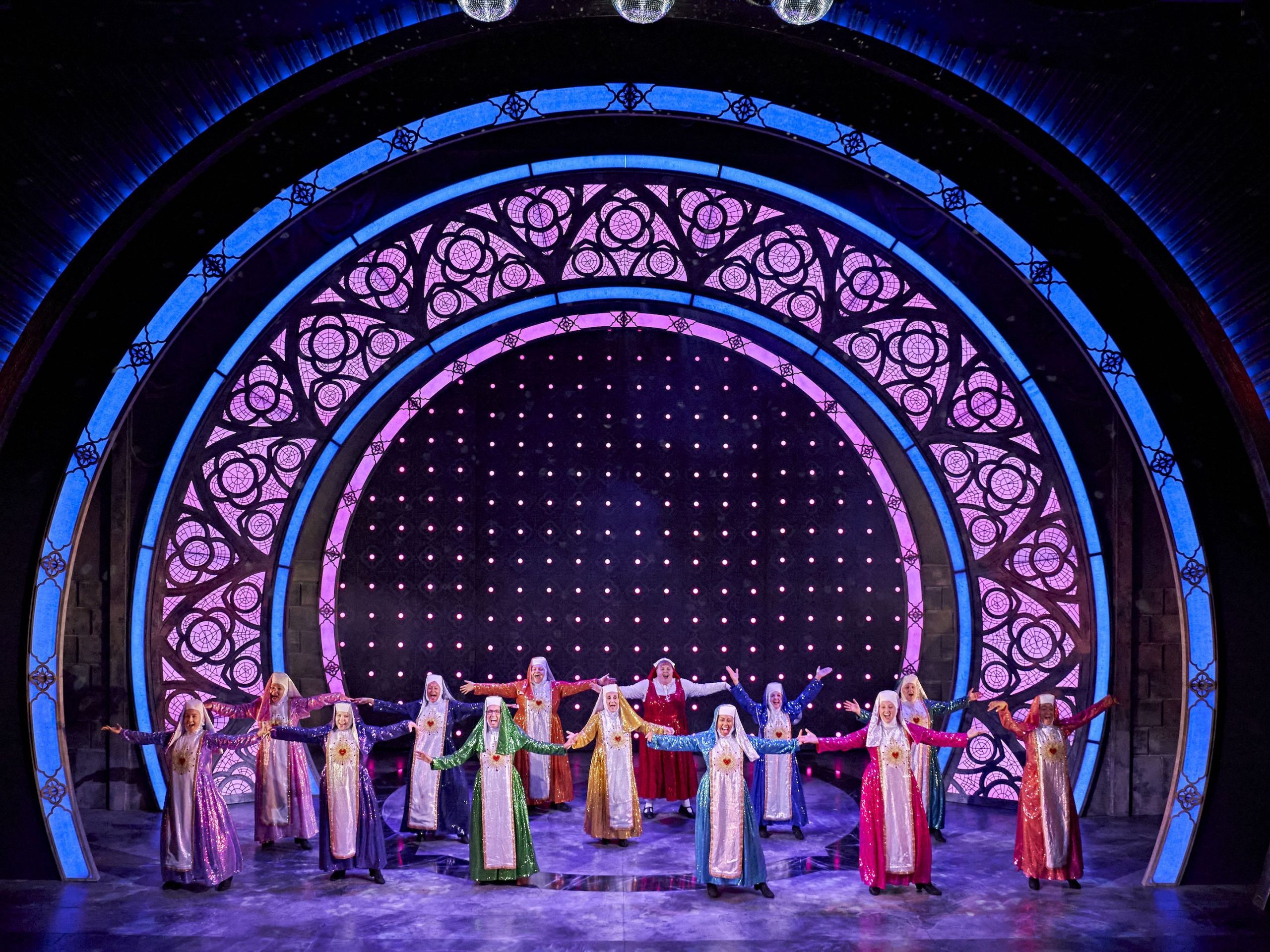
Culture Writer Fisola Kelly-Akinnuoye reviews Sister Act and finds the production to boast infectious energy
Whilst waiting for the performance to start, a beautiful glittery ‘Sister Act’ sign is hung illuminating the centre stage. This set the tone for the show that was about to unfold.
Sister Act is a musical comedy based on the 1992 film directed by Emile Ardolino and written by Paul Rudnick. It follows aspiring musical star Dolores as she seeks haven in a nunnery after she witnesses her manager and lover Curtis, murder a man. Dolores disguises herself as a nun under the care of Sister Superior. She adopts the role of choir coordinator transforming the off key nuns into a soulful harmonious band.
Choreographer Alistair David’s dance sequences were energetic disco themed numbers.
Like most musicals, the plot is simple and the resolutions happen quickly in the latter half but this gives space for the musical and dance elements to really shine through. Tim Mitchell’s lighting design communicates the tone of the performance incredibly well. The ambience of the nunnery, which is ornate and stately, is contrasted with the dazzle and flashing lights of the club. The dance numbers were illuminated by bright lights and disco balls that lit up the entire auditorium. Choreographer Alistair David’s dance sequences were energetic disco themed numbers with elements reminiscent of the dazzling Motown quality of musical groups like The Jackson Five and The Supremes. The vocal stand out performance for me was Sandra Marvin as Dolores. Her presence and vigour was so palpable and her spirit was infectious among the women in the nunnery.
The musical is funny and uses brilliant comedic timing and one liners from the characters. There is a strong theme of love. Corrupt love from Dolores and Curtis’ affair but also a pure sisterhood. Dolores helps Sister Mary Roberts find her voice through music. The sisters are bonded by song and sisterhood which is their sustenance and strength. Dolores is initially seen as a bad influence but then welcomed as an integral part of their found family.
Despite the immense enjoyment I found in the show, there were moments I felt uncomfortable.
Despite the immense enjoyment I found in the show, there were moments I felt uncomfortable. The show had me considering what tasteful humour is. There was a moment when the majority elderly, white audience belly laughed at Dolores being referred to as the ‘African nun’ by another nun. The character’s ignorance was not funny to me. There were lots of moments where the encounters with Dolores were clearly othering. One of the ironies of Dolores hiding in a nunnery is that she is this beautiful, dazzling musician who embodies her sexuality and ‘campness’. There is a careful line between performing this juxtaposition and depicting her with undertones of the black Jezebel stereotype in comparison to the holy, white nuns that she is said to be corrupting with her presence and more ostensibly her music.
The moments of racism weren’t exclusive to Dolores. One of Curtis Jackson’s gang members has a moment where he speaks Spanish rapidly and no one understands him. His character felt like a heavily caricatured stereotype. It begs the question of what is acceptable humour. Have we as theatre goers accepted a musical as the place for one-dimensional characters? Musicals don’t typically have space for deep character development as the production is their marketability and attraction but one-dimensional should not permit harmful stereotypes.
In terms of production the show is fun and dynamic. The songs had me dancing in my seat and the energy is infectious. It is a party in the theatre and I would recommend the show despite the uncomfortable elements of humour that should continue to be discussed.
Rating: 4/5
Enjoyed this? Read more Redbrick Culture here!
Comments